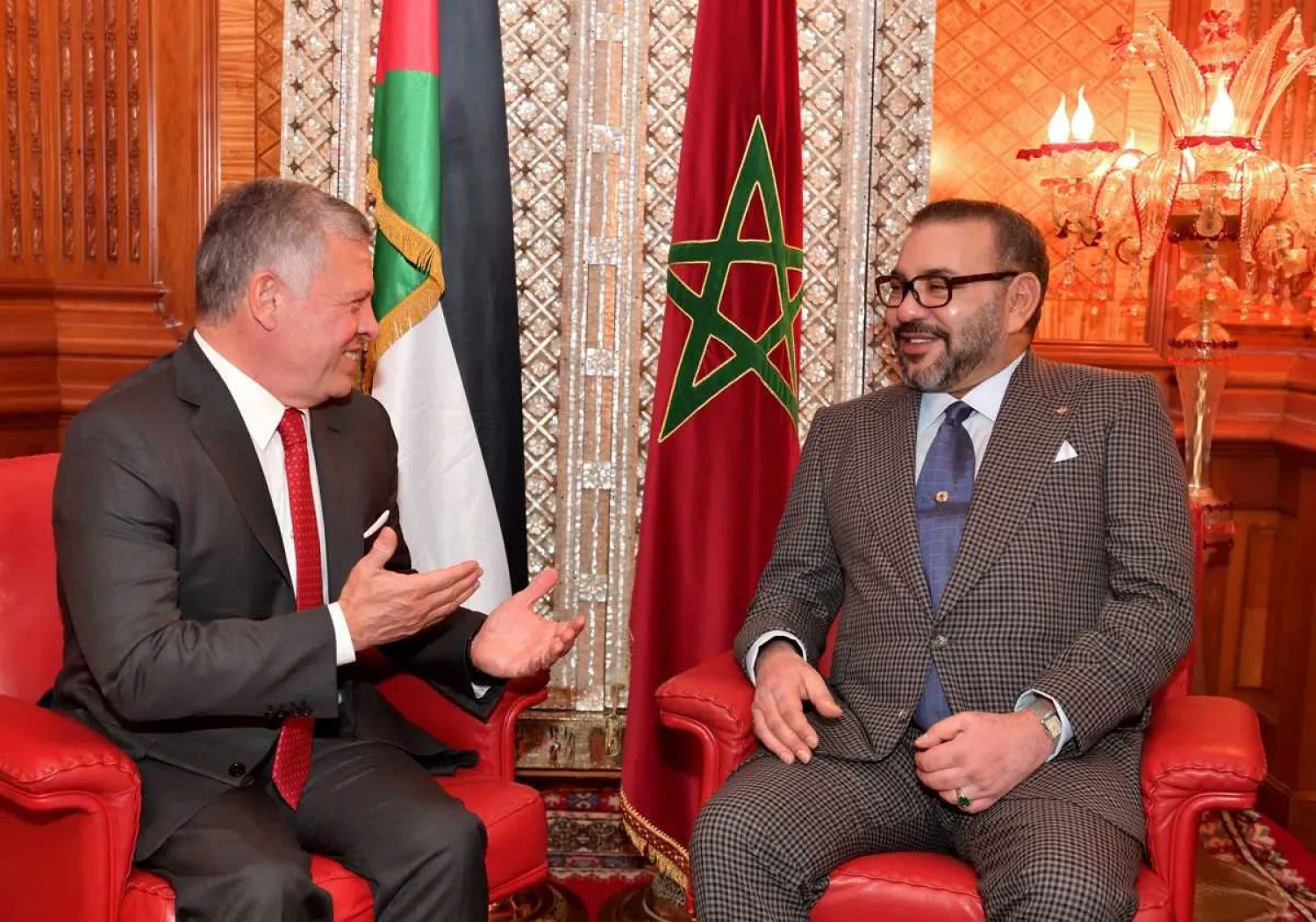Morocco and Jordan renewed on Thursday their full support for the Palestinian people in restoring their legitimate rights and enabling them to establish an independent Palestinian state with East Jerusalem as its capital, based on international law, relevant UN resolutions, the Arab Peace Initiative, and the two-state solution.
During talks at the Royal Palace in Casablanca ahead of the Arab Summit in Tunisia, Jordan’s King Abdullah II and Moroccan King Mohammed VI rejected all Israeli unilateral measures and steps that aim to change the legal and historic status quo, the demographics, and the spiritual and historical identity of East Jerusalem, especially in the city’s Muslim and Christian holy sites.
In a joint communique released following their talks, the two kings affirmed the importance of the historical Hashemite Custodianship undertaken by King Abdullah over Islamic and Christian holy sites in Jerusalem, noting its key role in safeguarding these sites and their Arab, Islamic, and Christian identity, especially Al-Aqsa Mosque.
Moroccan Foreign Minister Nasser Bourita and his Jordanian counterpart Ayman Safadi held a joint press conference in Casablanca to stress the importance of the summit.
Safadi said talks between the two Kings focused on the importance of joining efforts to end the Syrian crisis in line with UN Security Council Resolution 2254.
According to King Abdullah II and King Mohammed VI, the resolution will preserve the unity and cohesion of Syria, restore security and stability in the country, while also facilitating the return of Syrian refugees to their homeland to contribute to reconstruction efforts.
Safadi said King Mohammed VI applauded Jordan for welcoming large numbers of Syrian refugees.









